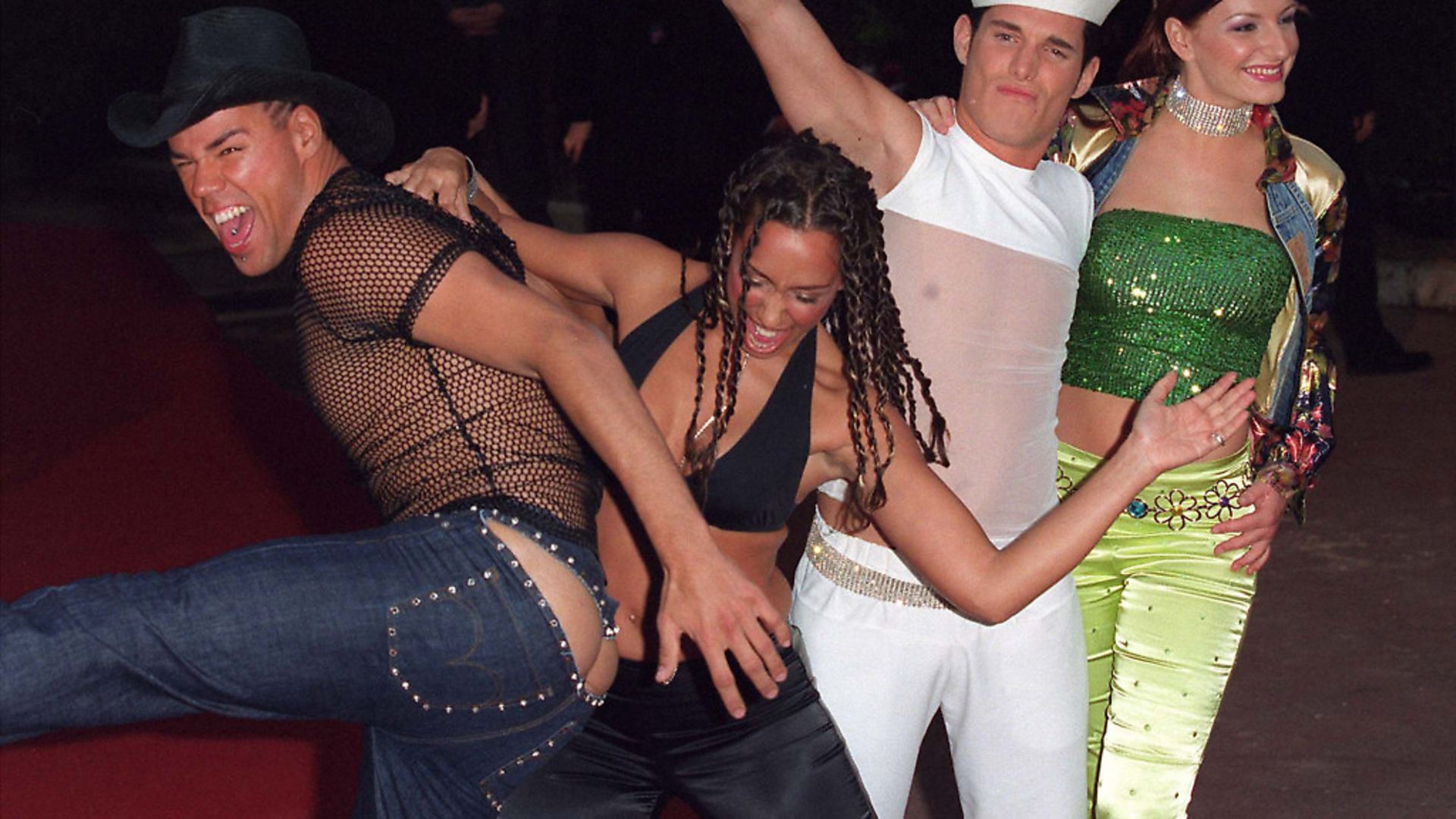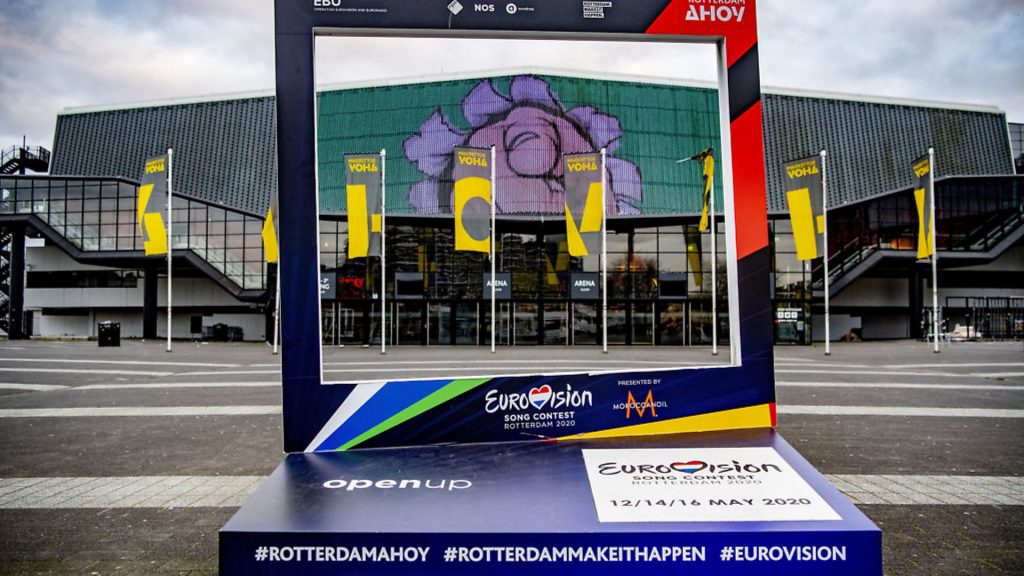
The Vengaboys are perhaps Rotterdam’s best known recent export, but the city also has its very own curious genre, SOPHIA DEBOICK reports

Eurovision is seemingly unstoppable. The contest was to be held in Rotterdam after singer-songwriter Duncan Laurence from nearby Spijkenisse won for the Netherlands with the anthemic ballad Arcade last year. And although it has been cancelled for the first time in its 64-year history, the show goes on.
The non-competitive Eurovision Song Celebration is airing on YouTube on the original semi-final dates this week, showing all 41 entries for 2020, and on Saturday the live grand final will be replaced with Eurovision: Europe Shine a Light, broadcast across Europe and hoping to attract something like the 200 million-odd viewers the contest usually pulls.
But Rotterdam has lost the Shine a Light hosting gig to the northern Dutch city of Hilversum, a hub for Dutch TV, and musically the city is hardly a name to conjure with.
The poor relation to Amsterdam, the port city’s instant musical association in Britain is with The Beautiful South’s 1996 No. 5 hit Rotterdam which, despite being written by Paul Heaton after an all-night bender in the city, is not a tribute but a cutting critique of the homogeneity of the international ‘beautiful people’. But Rotterdam has produced both one of the most powerful minds of the Northern Renaissance – one with strong opinions about music – a dance genre all of its own, and a Eurodance troupe who still exert their global influence.
Born in the mid-1460s as the bastard son of a priest from Gouda, humanist philosopher Erasmus is Rotterdam’s most famous son, with the city’s university, unsurprisingly, being named after him. Among his many scholarly interests, Erasmus wrote extensively on music, although mainly in a tone of biting criticism.
Cautioning against church music where ‘the clamour of voices and organs is heard and the scriptural text never or very rarely is heard’, he also painted a tantalising picture of the musical life of the churches of early 15th century Europe: ‘Straight trumpets, curved trumpets, pipes and sambucas resound everywhere, and vie with human voices. Amorous and shameful songs are heard, the kind to which harlots and mimes dance. People flock to church as to a theatre for aural delight.’
Erasmus’ view of the secular music of his time was slightly less condemnatory. As a man of international renown, he visited courts across Europe, and wrote of the musical accomplishments of Sir Thomas More and the young Henry VIII, as well as singling out the Flemish composers Johannes Ockeghem and Jacob Obrecht for praise. For Erasmus, as for the philosophers of antiquity, secular music was a key part of a humanist education, and he wrote in his De pronunciatione dialogus that training in singing was vital to becoming an effective orator. But modish songs with licentious themes enraged him, and he remarked on these ‘new songs which young girls study assiduously’, criticising their ‘obscene innuendoes, expressed in metaphors and allegories, that no manner of depravity could be depicted more vilely’.
Erasmus said of the cacophonous church music that he so hated that ‘pagan theatres had nothing comparable’. This would seem an apt description for Rotterdam’s very own musical genre – gabber, or Rotterdam hardcore. Rotterdam has a legendary club scene, with trance and house DJs like Ferry Corsten and Oliver Heldens natives of the city, a clutch of internationally renowned venues, and events like the Toffler techno festival (the initiative of the Toffler club, situated in a former pedestrian underpass) – but only gabber can claim its very origins in that scene.
Utterly eschewing the neo-hippy values of acid house, gabber emerged in the 1990s as a harder, more aggressive variant of hardcore techno, relying almost entirely on a repetitive bass drum beat, and amounting to an all-out aural assault.
Given its name by Rotterdam DJ D-Shake, whose hit Yaaah (1990) was an important precursor, gabber was pioneered by Paul Elstak, originally from The Hague, but who began in music DJing at the Rotterdam club Bluetiek-In. But the Parkzicht club, rather improbably housed in an early 20th century villa set in the city’s verdant Het Park, was the cradle of gabber, with Elstak organising the first of the Nightmare series of parties in 1992 in collaboration with DJ Rob Janssen, the Parkzicht’s resident DJ and later member of the legendarily extreme Rotterdam Terror Corps gabber act.
Gabber became the focus of a strenuously masculine, aggressive and proudly working-class subculture, with a uniform of Nike trainers and Lonsdale tracksuits, and a reputation marred by links to the far right and football hooliganism, largely revolving around the rivalry between Amsterdam’s Ajax and Rotterdam’s Feyenoord and, by extension, the two cities themselves. The Elstak project Euromasters referred to this enmity on their Amsterdam Waar Lech Dat Dan??? (Where the F**k is Amsterdam???) (1992), sometimes cited as the very first gabber single, which featured an anthropomorphised version of Rotterdam’s iconic Euromast observation tower pissing on Amsterdam on the cover.
But for all the extremity and underground nature of gabber, it became a force on the Dutch pop charts. Under the name Holy Noise, Elstak’s single James Brown is Still Alive (1991) had given him a No.5 hit, and after he founded Rotterdam Records in 1992, the label’s Poing! by Rotterdam Termination Source (aka producers Maurice Steenbergen and Danny Scholte) got to No.2 that August, its hundreds of maddeningly repetitive ‘boings’ apparently to the Dutch taste.
In the form of happy hardcore, gabber evolved (or devolved, depending on your point of view) into a serious European chart force, beginning with Elstak’s Life is Like A Dance (1995), which spiked the basic gabber blueprint with melodic elements, including adding vocals, while the euphoric Luv U More of the same year was the first of four singles to feature Rotterdam-born singer Shaydie to great success.
The gabber scene declined amid moral panic about its association with drugs and violence, but hardcore has never gone away, as the genre became plugged into the bloodstream of commercial Eurodance, as well as enjoying a major revival in the 2000s.
The bubblegum dance of the Vengaboys – another Rotterdam act – can claim a direct line of descent from happy hardcore. The Vengaboys, comprising the Brazil-born Kim Sasabone, raised in Zevenbergen 30 miles south of Rotterdam, Rotterdam-born Denise Post-Van Rijswijk, as well as ‘the boys’ – Donny Latupeirissa and Robin Pors – were the technicolour vision of Dutch producers Danski and Delmundo, who gave each member a Village People-style persona and combined frenetic beats and energetic dance routines to dominate the charts.
Inordinately fond of exclamation marks, the Vengaboys saw their We Like to Party! go Top 30 in the US in 1999, while they scored seven Top 10 singles in the UK between 1998 and 2000, including No. 1s with Boom, Boom, Boom, Boom!! and We’re Going to Ibiza!, both of which spent weeks and weeks at the top of the Dutch charts. Twenty years later, they are back, with tour dates due to resume in June – coronavirus permitting – and some highly improbable circumstances meaning they have enjoyed the spotlight in recent months. Last year, We’re Going to Ibiza! raced up the Austrian iTunes chart as the government collapsed after Freedom Party leader Heinz-Christian Strache was covertly filmed at an Ibizan villa apparently discussing fixing state contracts. And last month the Up & Down Challenge became a TikTok craze, as people apparently suffering bad cases of cabin fever engaged in two-person acrobatic push-ups along to the Vengaboys’ 1998 single of the same name (enough people have since injured themselves that the band have had to issue warnings).
Much touted although never put forward to represent the Netherlands at Eurovision, the Vengaboys would make a great interval act if Rotterdam is successful in its bid to remain as host for the contest in 2021 and, as city mayor Ahmed Aboutaleb has put it, throw a ‘party for everybody’ – a Europe-wide celebration amid inevitable post-lockdown uncertainty. Indeed, the significance the contest can have in relation to the defining crises of European history shouldn’t be underplayed. Thursday May 14, the date the second semi-final would have taken place in Rotterdam, marks the 80th anniversary of the devastating bombing of the city that levelled its historic heart and started a firestorm that burned for days. Eurovision is a reminder that European nations no longer have anything more important to fight about than who can churn out the best pop tune, and it is a manifestation of the unity that can be achieved through music – proof, as Erasmus said, that ‘Divina res est Musica’ (‘Music is something divine’).










